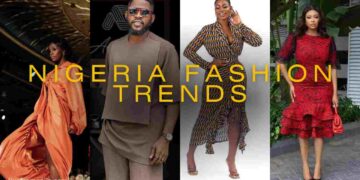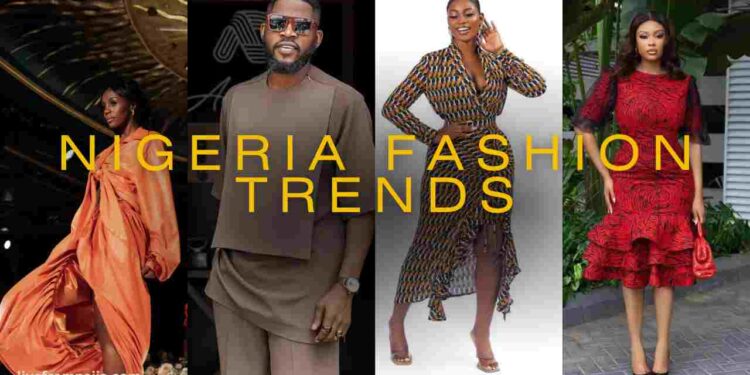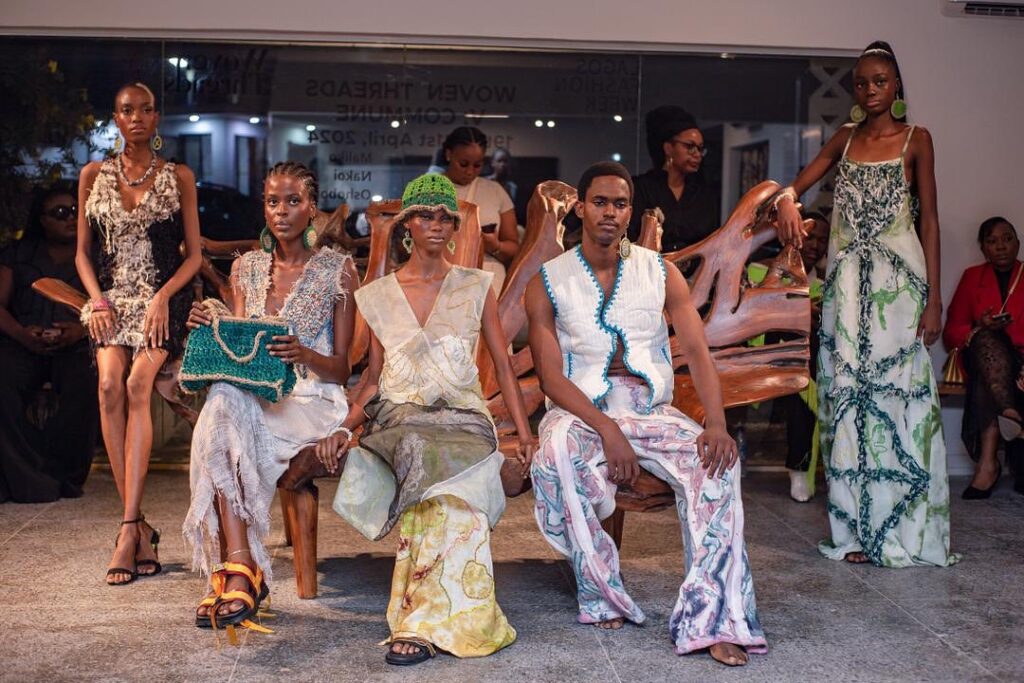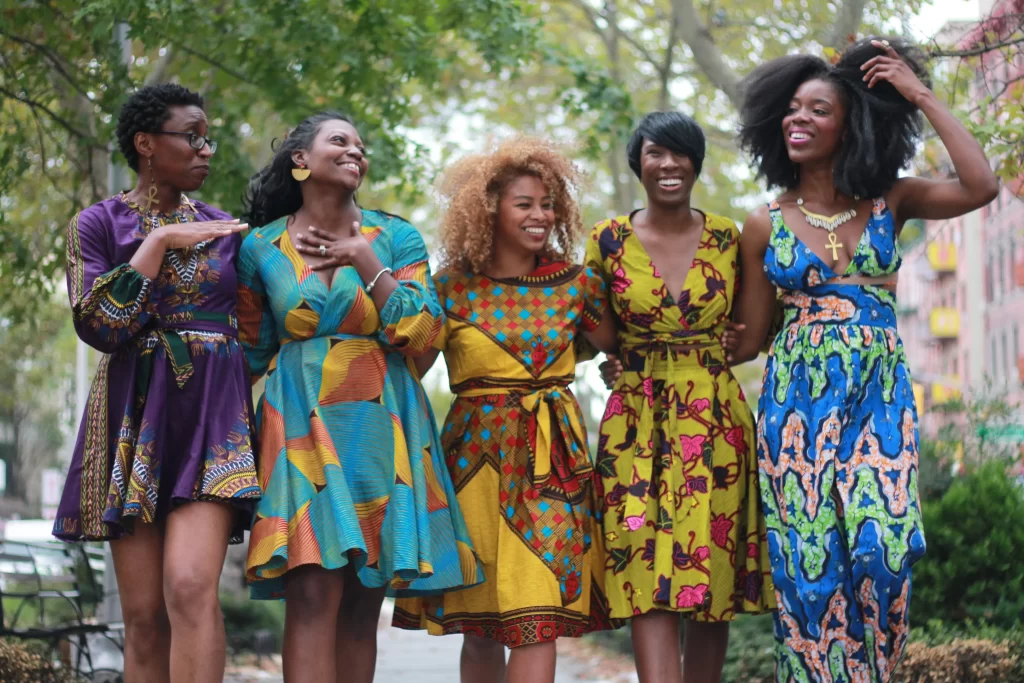Nigeria fashion trends are ever-evolving, constantly blending traditional styles with contemporary trends to create a vibrant and dynamic look. In 2024, Nigerian fashion is characterized by a unique fusion of music influences, global trends, and the rich cultural heritage that permeates every design.
These trends not only reflect the country’s diverse culture but also celebrate its history and creativity, offering a bold expression of identity. The current fashion scene in Nigeria is both colorful and energetic, showcasing intricate patterns and vibrant hues that are deeply rooted in tradition.
Many Nigerian ethnic groups have seamlessly woven their cultural customs into modern designs, making the fashion industry a melting pot of creativity and heritage. On the global stage, these designs have gained significant traction, captivating people from all backgrounds.
Fashion icons, celebrities, and even multinational corporations are increasingly embracing Nigerian fashion, celebrating its bold colors, rich meaning, and undeniable energy.
Here are the top Nigeria fashion trends of 2024:
1. Celebrity Influence
Nigerian celebrities are key players in shaping the country’s fashion trends. Stars like Tiwa Savage, Wizkid, and Funke Akindele are not just entertainers but also influential style icons.
Their fashion choices have a major impact on what Nigerians wear, whether it’s for casual outings or glamorous red carpet-events. When these celebrities embrace a particular style, it often becomes an instant trend, influencing the broader fashion trend in Nigeria.
2. Sustainable fashion
Sustainable fashion is becoming an important trend in Nigeria, with a growing focus on eco-friendly materials and supporting local artisans. This movement revolves around adopting environmentally and socially responsible practices in the production, distribution, and consumption of clothing.
Key principles of sustainable fashion include using eco-friendly materials, reducing waste, and ensuring fair labor practices. In Nigeria, the concept is gaining significant traction as both designers and consumers become more conscious of the environmental impact of their choices.
A central aspect of sustainable fashion is the use of eco-friendly materials. Nigerian designers are increasingly turning to organic cotton, bamboo, hemp, and other sustainable fibers. These materials are not only biodegradable but also require less water and chemicals during cultivation, making them a more sustainable option.
Additionally, traditional techniques like hand-weaving and natural dyeing are seeing a resurgence. For example, Aso-Oke, a hand-woven fabric traditionally crafted by the Yoruba people, is being incorporated into modern designs. This practice not only minimizes environmental impact but also supports local artisans and helps preserve cultural heritage.
3. Traditional fashion
Timeless and elegant, traditional Nigerian fashion blends cultural heritage with modern style. Attires such as Aso-Oke, Gele, and Agbada are often worn on special occasions, reflecting the country’s rich cultural traditions. The fashion industry in Nigeria plays a vital role not only in preserving cultural identity but also in contributing significantly to the nation’s economy.
Nigerian fashion is known for its vibrant use of colors, diverse fabrics, and intricate embellishments, such as beads. Each ethnic group within the country has its distinct fashion, influenced by tribal customs and cultural practices. Additionally, Nigeria is a hub for producing fashionable textiles and finished garments, with designers achieving international recognition for their innovative work.
4. Urban Fashion
Urban fashion in Nigeria offers a modern and edgy take on style, blending Western influences with distinct local flair. This trend draws inspiration from global fashion movements while infusing a unique Nigerian twist. Streetwear, athleisure, and contemporary designs are central to Nigeria’s urban fashion scene.
Popular items like denim, oversized t-shirts, and sneakers make this trend both accessible and trendy, particularly among the younger generation. Nigerian urban fashion reflects the dynamic blend of global trends and local culture, creating a distinctive and vibrant style that resonates with the youth.
5. Afrocentric fashion
Afrocentric fashion celebrates Nigeria’s cultural heritage with vibrant colors, intricate patterns, and traditional fabrics like Ankara. Unlike Western fashion, Afrocentric clothing does not include fine linen dresses, kilts, collars, or the use of kohl around the eyes.
Instead, it highlights distinctive apparel motifs and traditional textiles, production techniques, and cutting methods from across Africa. Afrocentric fashion draws inspiration from the diverse apparel traditions of the African continent, reflecting both the cultures of colonizers and the colonized.
The story of Batik, which originated in Indonesia but was embraced in parts of Africa, exemplifies this fusion of influences. For Afrocentrists, Afrocentric dress is the cultural norm, while Western dress is considered “ethnic” and “exotic.”
This perspective has led Afrocentric fashion to become a powerful symbol of African diaspora culture. Political and cultural movements, such as black cultural nationalism, have adopted Afrocentric fashion for its visual representation of African identity and black empowerment.
Garments like the dashiki, Abacos (Mao-style suit), Kanga, caftan, wraps, and Buba are all emblematic of African and black identity. These items, rooted in the African diaspora, are either worn exclusively or integrated into Western fashion, expressing a deep connection to African heritage and pride.
Factors Contributing to the Global Appeal of Nigerian Fashion Trends
Nigerian fashion has gained significant international attention in recent years, with Nigerian designers, influencers, and fashion icons playing a crucial role in shaping global fashion trends.
The unique blend of traditional African aesthetics with modern styles, combined with the country’s vibrant cultural heritage, has made Nigerian fashion a significant force in the global fashion industry. Below are some of the key factors contributing to the global appeal of Nigerian fashion trends:
1. Rich Cultural Heritage and Traditional Textiles
One of the main reasons Nigerian fashion has captured global attention is its deep connection to the country’s diverse cultural heritage. Traditional fabrics like Ankara, Aso Oke, Adire, and Kente are often at the core of Nigerian fashion designs. These fabrics, known for their bold patterns, vibrant colors, and intricate weaving techniques, reflect the diverse ethnic groups and traditions in Nigeria.
The use of these traditional textiles in contemporary designs allows Nigerian fashion to maintain a sense of cultural identity while also appealing to international audiences. Designers have creatively incorporated these fabrics into both casual and formal wear, making them accessible and attractive to a global market.
2. Influence of Nigerian Celebrities and Fashion Icons
Nigerian celebrities and fashion icons, such as Tiwa Savage, Burna Boy, Wizkid, Funke Akindele, and Genevieve Nnaji, play a pivotal role in showcasing Nigerian fashion on the world stage. Their bold fashion choices, whether on red carpets, social media, or public appearances, often set trends that are quickly adopted by fans worldwide.
For instance, Tiwa Savage’s fusion of traditional Nigerian wear with Western influences has gained her international recognition. Similarly, Burna Boy’s sense of style, which often incorporates traditional African prints and fabrics, has helped popularize Nigerian fashion, especially in the music and entertainment industry.
3. Globalization of the Nigerian Entertainment Industry
The global success of Nigerian music, movies (Nollywood), and media has brought Nigerian fashion into the global spotlight. Nigerian artists are increasingly gaining international recognition, and their influence extends to fashion.
With platforms like Instagram, Twitter, and TikTok, Nigerian celebrities and designers can now directly engage with global audiences, showcasing Nigerian fashion trends to millions.
The popularity of Afrobeats music, with artists like Burna Boy, Wizkid, and Davido, has also contributed to the visibility of Nigerian fashion. Their music videos, performances, and personal styles have become a visual representation of Nigerian culture and fashion, leading to greater global interest.
4. Emerging Nigerian Fashion Designers
In recent years, Nigerian fashion designers have gained international acclaim for their innovative designs that blend traditional African aesthetics with contemporary fashion trends. These designers have showcased their collections at international fashion shows, including New York Fashion Week and London Fashion Week, earning recognition for their unique and bold designs.
Their ability to merge the old with the new, for example, combining modern silhouettes with traditional African fabrics, has contributed to the global appeal of Nigerian fashion. The use of Nigerian craftsmanship in their collections, along with their fresh takes on African culture, has helped elevate Nigerian fashion to international status.
5. Support for Sustainable and Ethical Fashion
Nigerian designers have also embraced sustainability and ethical fashion practices, which resonate with global trends. The use of eco-friendly materials, the promotion of local artisans, and the emphasis on slow fashion contribute to a growing demand for sustainable fashion worldwide.
Nigerian designers often prioritize fair labor practices and support local artisans, ensuring that the craft of tailoring, weaving, and embroidery remains a vital part of Nigeria’s economy and cultural heritage. The focus on these sustainable practices has caught the attention of eco-conscious fashion enthusiasts worldwide.

















